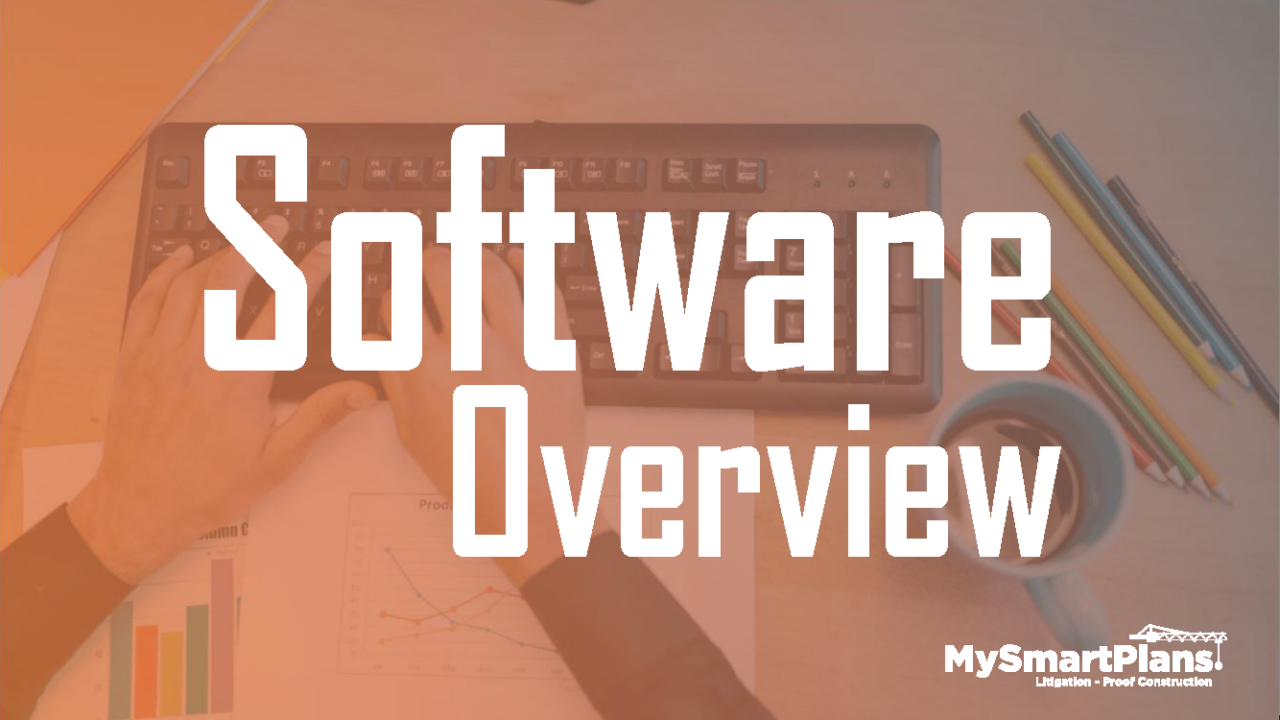MySmartPlans has saved thousands of hours in costly rework and has allowed us to collaborate with our team members in the most efficient manner possible.

Honors & Awards
Business Of The Year
Kansas Women-Owned Businesses 2017
Rule Breaker Award
New York Rule Breakers 2015
25 Outstanding Businesses Under 25 Employees
Twenty Five – 25 2012
CEO of the Year
City Union Mission 2009
Women Who Mean Business
Biz Journal 2009
Vision of Excellence
National Association of Women in Construction – 2009
About MySmartPlans

Born from Hard-Won Experience, Built for Unshakeable Control:
MySmartPlans isn’t just another software company; it’s the culmination of resilience and expertise forged in the crucible of construction chaos. Co-founders Shelley (CEO) and Dominick (President), a highly successful 45-year contractor, experienced firsthand how a single project plagued by insufficient data could unravel decades of success, forcing them to close their previous company’s doors.
They didn’t just rebuild; they reinvented construction project management to conquer the very issues that cost them dearly.
MySmartPlans delivers unparalleled project control through a unique fusion of advanced technology and dedicated human expertise. We embed an experienced Digital Information Librarian directly into your team. These specialists are far more than support; they are the catalyst for rigorous Data Governance, meticulously organizing every document and data point.
This creates radical transparency and efficiency, drastically mitigating the risks associated with poor document oversight. For 19 years, we’ve empowered clients to deliver billions of dollars in projects on time and budget, backed by an ironclad, audited project history proven to prevent costly disputes and litigation. We offer the world’s most advanced construction intelligence solution, ensuring clarity and success from groundbreaking to handover.
Honors & Awards
Business Of The Year
Kansas Women-Owned Businesses 2017
Rule Breaker Award
New York Rule Breakers 2015
25 Outstanding Businesses Under 25 Employees
Twenty Five – 25 2012
CEO of the Year
City Union Mission 2009
Women Who Mean Business
Biz Journal 2009
Vision of Excellence
National Association of Women in Construction – 2009
About MySmartPlans

Shelley Armato and Dominick Armato
Shelley is the Founder and CEO of MySmartPlans. Her husband Dominick is Co-founder and President. They suffered firsthand the effects of chaos in the industry. Dominick, a 45-year contractor, was wildly successful and one project with insufficient data caused them to shut the doors on that company. But they rose again and reinvented the construction industry by streamlining the business.
MySmartPlans is a software-as-a-service solution with an experienced digital information librarian as part of your team, who creates transparency, organization, and efficiency in construction projects. They are the driving force behind Data Governance, which mitigates the risk associated with insufficient document oversight. MySmartPlans has been improving the industry for 16 years and has a revenue aggregate of over 19 billion dollars. Build on time, on schedule, and with audited as pre-discovery files that are proven to prevent litigation!
MySmartPlans Track Record:
17 years in business
100% of our 2,130 projects were protected from litigation
$23 billion in project value completed
99.9% of projects were completed on time & on budget
18% project on-site savings
Platform Features
MySmartPlans Track Record:
17 years in business
100% of our 2,130 projects were protected from litigation
$23 billion in project value completed
99.9% of projects were completed on time & on budget
18% project on-site savings
Learn More
The MySmartPlans Manifesto
MySmartPlans has saved thousands of hours in costly rework and has allowed us to collaborate with our team members in the most efficient manner possible.

MySmartPlans helped us focus on the project rather than collection of data & documentation. The MSP team knows what needs to be included and does a great job gathering, managing and ensure timey responses on required information. It also gives us a centralized location for project documentation, giving us comfort of knowing where to find information in the future. MSP allows us to work smarter and be smarter.

Technology has made promises over the years that someday we would all be paperless and all electronic, but there has been a missing link in sharing information between groups. MySmartPlans is the medium that fills that gap.

As a construction litigator…to be able to point and click and find the documentation that relates to that specific change order, whatever, in seconds as opposed to days or weeks manually would be a game changer.

Construction projects have long been known for their complex and time-consuming nature. From designing and planning to execution and completion, numerous challenges can arise at every step of the way. However, with the advancements in technology, specifically software solutions, construction project managers and teams now have powerful tools at their disposal to streamline their processes and ensure efficient project completion. In this blog post, we will delve into the various ways software can significantly increase efficiency in construction projects, providing construction professionals with the means to overcome obstacles and deliver successful outcomes.
One of the most significant benefits of using software in construction projects is the ability to optimize resource allocation. Traditional approaches to resource management often involve manual processes, resulting in human errors, delays, and inefficiencies. However, with the use of specialized construction management software, project managers can allocate resources effectively while considering various factors such as availability, skillset, and cost.
For instance, advanced software solutions can provide real-time visibility into the availability and utilization of equipment and machinery, allowing project teams to schedule tasks accordingly, avoid conflicts, and minimize downtime. Similarly, software tools can generate accurate estimates of material quantities needed for specific project phases, preventing overordering or understocking, which can lead to delays and increased costs. By optimizing resource allocation through software, construction projects can be executed smoothly, reducing unnecessary delays and expenses.
Communication and collaboration are crucial aspects of any construction project, involving numerous stakeholders, including architects, engineers, contractors, and subcontractors. Effective communication and collaboration contribute to seamless project execution and minimize errors and rework. However, traditional communication channels, such as emails and phone calls, can be time-consuming and prone to misinterpretation.
By leveraging construction project management software, teams can streamline communication and collaboration processes. These software solutions offer centralized platforms where all project-related information, documents, and discussions can be stored and accessed in real-time. Furthermore, many software tools provide features such as notifications, task assignments, and progress tracking, ensuring that all team members remain on the same page and deadlines are met.
Additionally, cloud-based software solutions enable real-time collaboration on project designs and plans, allowing multiple stakeholders to work together simultaneously. This eliminates the need for time-consuming back-and-forth exchanges, minimizing delays and improving overall project efficiency. Through enhanced communication and collaboration facilitated by software, construction projects can progress smoothly and avoid unnecessary rework.
Project planning and scheduling are critical to the success of construction projects. However, traditional manual methods can often result in errors, oversights, and delays. Software solutions specifically designed for construction project management offer comprehensive features to assist with efficient planning and scheduling.
These software tools allow project managers to create detailed project plans, break tasks into manageable phases, and allocate timelines and resources. By automating these processes, construction professionals can save significant time and effort and ensure greater accuracy in project planning. Additionally, software solutions can generate visual Gantt charts and critical path analyses, providing a clear overview of project timelines, dependencies, and potential bottlenecks.
Furthermore, as construction projects often face unforeseen obstacles and changes, software allows for dynamic scheduling adjustments. Project teams can quickly adapt schedules, reassign resources, and reroute workflows, ensuring that the project stays on track and avoids unnecessary delays.
Construction projects involve an extensive array of documents, including contracts, design drawings, permits, and safety regulations. Managing and organizing these documents manually can be challenging, leading to misplaced or outdated information and increased risk of errors.
With the help of document management software tailored for the construction industry, teams can store, organize, and track project documents digitally. These software solutions provide version control, ensuring that team members access the most recent and accurate documents. Moreover, they offer intuitive search functionalities, enabling quick retrieval of specific information, saving time and reducing frustrations.
Software solutions also facilitate seamless collaboration on project documents. Multiple team members can work on the same document simultaneously, track changes, and provide real-time feedback. This enhances transparency, reduces miscommunication, and ensures that all stakeholders are aligned with the latest project documentation. By optimizing document management and collaboration through software, construction projects can eliminate costly errors and delays caused by outdated or misplaced information.
Construction projects are inherently exposed to various risks, including unforeseen weather conditions, material shortages, regulatory changes, or unexpected design conflicts. Effectively managing these risks is crucial for project success and overall efficiency. Construction project management software provides valuable tools to identify, assess, and mitigate risks throughout the project lifecycle.
Advanced software solutions enable teams to conduct comprehensive risk assessments by analyzing historical data, identifying potential vulnerabilities, and evaluating their potential impact. This proactive approach empowers project teams to implement appropriate risk mitigation strategies such as contingency plans, alternative suppliers, or design modifications.
Furthermore, construction software can facilitate real-time monitoring and tracking of project risks. Automated alerts and notifications ensure that project teams are promptly informed of any emerging risks, allowing them to take immediate action. By leveraging software to enhance risk management, construction projects can mitigate potential setbacks and maintain progress, ultimately improving overall efficiency.
Measuring project performance is essential to assess progress, identify bottlenecks, and make informed decisions for continuous improvement. Traditional manual methods of performance tracking and reporting can be time-consuming, prone to errors, and lack the necessary real-time insights for effective decision-making.
Software solutions designed for construction project management offer robust performance tracking and reporting features. These tools enable project teams to track key performance indicators (KPIs), such as cost, schedule adherence, quality, and safety, in real-time. By capturing data automatically and generating comprehensive reports, software solutions provide project managers with a holistic view of project performance, allowing them to identify areas of improvement and make data-driven decisions promptly.
Moreover, construction software can facilitate stakeholder communication through automated progress reports. These reports provide stakeholders with a clear overview of project status, milestones achieved, and potential risks, fostering transparency and accountability. By leveraging real-time performance tracking and reporting through software, construction projects can remain on track, minimize delays, and ensure efficient delivery.
Building Information Modeling (BIM) has revolutionized the construction industry by enabling digital representations of physical and functional characteristics of a building. BIM allows for efficient collaboration, clash detection, and visualization throughout the project lifecycle. Integrating BIM software with construction project management software further enhances project efficiency.
By combining project management software with BIM tools, construction teams can achieve seamless integration between project planning, scheduling, and 3D modeling. This integration enables automatic updates of project plans based on BIM modifications, preventing inconsistencies and improving accuracy. Additionally, BIM software facilitates clash detection, allowing teams to identify and resolve design conflicts virtually before they occur on-site, reducing rework and delays.
Furthermore, construction project management software integrated with BIM provides a centralized platform for project documentation, including design drawings, specifications, and models. This streamlines communication, coordination, and collaboration among project stakeholders, ultimately improving project efficiency and reducing costly errors.
In conclusion, the use of software in construction projects offers immense potential to increase efficiency, streamline processes, and ensure successful project completion. By optimizing resource allocation, streamlining communication and collaboration, improving project planning and scheduling, enhancing document management and collaboration, facilitating risk management, enabling real-time performance tracking and reporting, and integrating BIM, construction project teams can overcome challenges, minimize delays, and deliver projects on time and within budget.
As construction professionals embrace the power of software solutions tailored for their industry, they equip themselves with the tools necessary to navigate the complexities of modern construction projects. By leveraging technology and embracing innovation, the construction industry can continue to evolve and build a future where efficiency and productivity are the norm. So, are you ready to harness the power of software and take your construction projects to the next level of efficiency? Let us know your thoughts and experiences in the comments below.
MySmartPlans is the leading software solution for construction project management, offering transparency, organization, and efficiency to ensure on-time and on-budget completion of projects. With our experienced digital information librarians and data governance capabilities, we help mitigate risks and prevent litigation in the construction industry.
A recent Oracle article, “How AI Is Reshaping Construction,” correctly identifies the transformative potential of artificial intelligence in addressing the industry’s critical challenges of labor

What Are You Really Buying with MySmartPlans? (It’s Not Just Document Management) Discover how MySmartPlans goes beyond construction document management to deliver confidence, control, and

The Construction Data Explosion Every major construction project today operates like a massive data machine. Airports, hospitals, high-rises—these projects generate not just thousands of documents,
The only third party administered construction management platform
803 Armstrong
Kansas City, KS 66101
Phone:
(816) 221-7881
Email:
shelley@mysmartplans.com
support@mysmartplans.com

Powered By EmbedPress